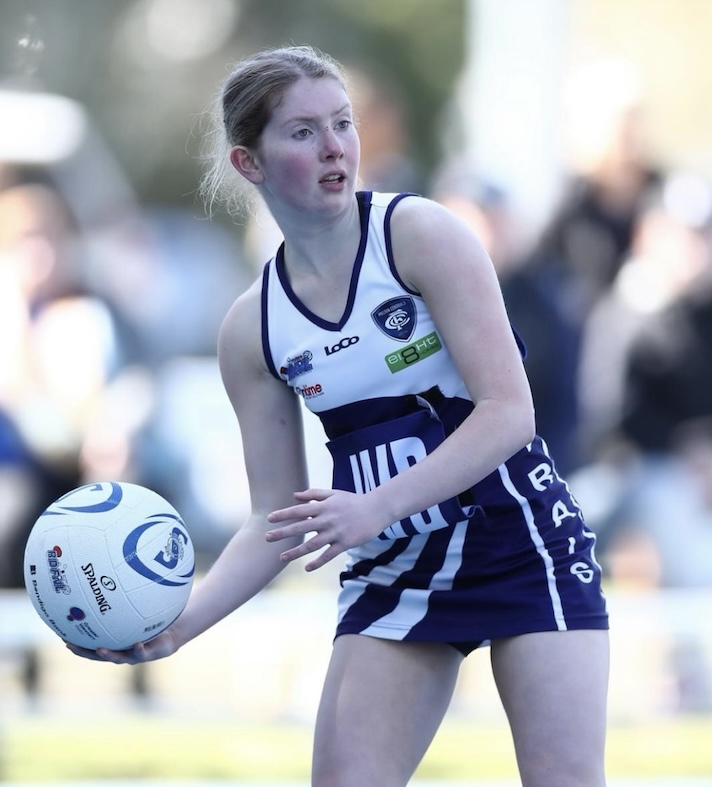Overcoming the lingering effects of concussion

With six seconds left on the clock and 20 points up in the game, Mackenzie was on the verge of celebrating a win with her teammates.
But in those final moments of the netball match on a Saturday afternoon in November 2022, everything around her turned to black.
Mackenzie, then 15, was clocked in the face by an opposing player’s upper arm, knocking her out, and causing her to hit her head on the indoor court.
Out cold for a minute and suffering a nosebleed and swollen left eye, Mackenzie was taken to The Royal Children’s Hospital where she was diagnosed with a concussion.

Image: Mackenzie suffered a concussion during a netball match
“I was knocked out while jumping mid-air, the force spinning me 180 degrees, and then I landed on my head for a second blow,” she said.
“When I woke up, I couldn’t see out of my eye and I was lying in a pool of my own blood. I felt dizzy, confused and everything became a blur.”
In the weeks that followed, as well as the dizziness and confusion, Mackenzie was nauseous, sensitive to bright lights, had memory loss, headaches and muscle soreness and poor mental health. She also missed weeks of school due to the ongoing concussion symptoms.
To help her recover, Mackenzie was enrolled in Murdoch Children’s Research Institute’s (MCRI) Concussion Essentials Plus program for children with chronic persisting concussion symptoms. It involved weekly physiotherapy and psychology treatments spanning months and education around return to exercise, school and sports.
“It was a slow recovery process, but the intervention helped me return to my normal self again,” she said. All I wanted was to be back on the netball court. I didn’t understand at the time how much of a long-term impact concussion can have.”
Mackenzie returned to netball five months after the injury.

Image: Mackenzie in action on the court.
“I’m more hesitant and cautious on the court now but I would never give up playing netball, I love the sport too much,” she said.
Mackenzie’s mum Karen Payne, who will never forget the image from that November day, said her daughter wouldn’t have made as much progress in her recovery without the help of the concussion program.

Image: Mackenzie with her mum Karen, who said her daughter's recovery was accelerated due to the help of a MCRI concussion program.
“The incident happened right in front of me and I just went into shock, before going into autopilot mode at the hospital,” she said.
“But it was comforting to have Mackenzie in the program, being assessed and monitored regularly. She wouldn’t be at the stage she is today without that assistance.”
Karen said new research led by MCRI that found a blood protein could help detect which children would experience ongoing concussion symptoms would come as a welcome to relief to families.
“If clinicians can easily find out which children will have long term concussion symptoms then they can receive targeted and early intervention,” she said. Recovery from concussion can be a long process, like our daughter’s, and anything that can help speed up the process would make a world of difference.”

